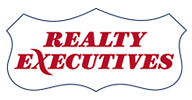There are a ton of terms that real estate professionals banter about. We’ve whittled them down into just a few of the As, Bs and Cs that crop up during a real estate transaction.
Adjustable or Variable rate mortgage: this type of mortgage varies both your interest rate and mortgage payment price through a particular time period. Your real estate and mortgage professionals can help you determine if an adjustable rate or variable rate mortgage makes sense for you or if you are better off sticking to a fixed rate mortgage.
Agent: while many licensed real estate sales professionals will help you buy and sell your home, some, may be exclusively buyer’s agents or listing/seller’s agents. Buyer’s agents help you find the home of your dreams: pulling properties, facilitating showings and helping you at the negotiating table. Listing agents give properties the best marketing and help price them correctly for the market to get them sold.
Appraisal: once you’ve decided you are interested in a home, your lender may request an appraisal to independently verify its value before advancing funds for your mortgage and have it match up to what the buyer and seller have agreed upon when it comes to price. In this time of multiple offers, buyers should protect themselves by including a financing clause when purchasing a home or be prepared to pay the difference between the appraisal value and the purchase price negotiated.
(Pre-)Approval letter: this is a letter from your banking institution that says how much they will lend you in the event you do find a home you wish to purchase, after a deep dive into your credit history and your ability to repay. This differs from a pre-qualification letter, which is a first step in the mortgage process where a lender commits offering you a mortgage rate for a set period of time.
Bridge loan: bridge loans are perfect for buyers who have found the home of their dreams but are waiting on the sale of their own home to be able to put money down. Once the previous home is sold, the loan can be repaid. Be wary that many lender will not bridge without a firm offer from a buyer on your home.
Broker: a licensed agent has to work under a licensed broker to represent buyers and sellers. Once agents continue their education and receive a broker’s license, they can either continue to work as an agent, work as a broker helping other agents through the transaction process, or do a hybrid of both.
Closing costs: when saving for that first home — or deciding how much home you can afford in your next — remember to account for closing costs along with the purchase price: anything from homeowners insurance, CMHC, appraisal and legal fees, land transfer tax and prepaid maintenance fees and property taxes can cost you thousands at the closing table, so be prepared. In general terms, 1.5% of the purchase price is an often used estimate.
Contracts: once everything is nailed down and you’re ready to buy the home, prepare to sign papers — a lot of them — possibly with the help of a real estate lawyer along with your agent.




